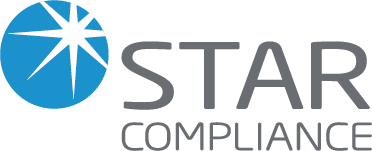Market volatility means greater regulator flexibility, at least to some degree, as the UK regulator adjusts to the strange new world of the coronavirus the same as the rest of us
Everyone's learning to make adjustments in the strange new world of the coronavirus, including regulators. The Financial Conduct Authority has recently begun issuing statements related to the pandemic, i.e., what's now expected of firms. Flexibility, and a slight slackening of the regulatory reins, is the order of the day, though the FCA makes it clear it's still keeping a watchful eye open, and that basic standards of good governance and risk mitigation must be adhered to. You can access the FCA's general coronavirus news page here, and their page dedicated to guidance for financial firms here. Following is our summary of FCA thinking.
GENERAL EXPECTATIONS OF FINANCIAL FIRMS
- FCA rules give firms the ability to consider theirs' and customers’ circumstances. The FCA welcomes firms reviewing their current arrangements to address the evolving situation while managing risks to their employees, customers, and the market.
- The FCA expects firms to be taking reasonable steps to ensure they're prepared to meet the challenges coronavirus could pose to customers and staff, particularly through their business continuity plans.
- The FCA expects firms to provide strong support and service to customers during this period. It expects firms to manage their financial resilience and actively manage their liquidity. Firms should report to the FCA immediately if they believe they will be in difficulty.
MARKET TRADING AND REPORTING
- As firms are moving to alternative sites and remote-work arrangements, they must consider the broader control environment in these new circumstances.
- Firms should continue to record calls, but the FCA accepts that some scenarios may emerge where this is not possible. Firms should make the regulator aware if they are unable to meet these requirements.
- The FCA expects firms to consider what steps they could take to mitigate risk if they're unable to comply with their obligations to record voice communications. This could include enhanced monitoring, or retrospective review once the situation has been resolved.
- Firms may experience difficulties in submitting regulatory data, in which case the FCA expects them to maintain appropriate records during this period and submit the data as soon as possible. Firms should not unnecessarily delay these submissions.
- Firms should continue to take all steps to prevent market abuse. This could include enhanced monitoring, or retrospective reviews. The FCA will continue to monitor for market abuse and, if necessary, take action.
- The FCA notes the recent statement from ESMA regarding upcoming changes to the tick-size regime for certain firms. The FCA supports the statement, but will not prioritize supervision of the new requirements at this time.
- The FCA expects firms to focus on minimizing the potential for operational disruption during this period, and will keep this situation, and its position on it, under review.
OPERATIONAL RESILIENCE
- The FCA expects firms to have contingency plans to deal with major events, and that the plans have been tested.
- The FCA is actively reviewing the contingency plans of a wide range of firms. This includes firms’ assessments of operational risks, the ability of firms to continue to operate effectively, and steps firms are taking to serve and support customers.
- Firms should take all reasonable steps to meet the regulatory obligations which are in place to protect their consumers and maintain market integrity.
SM&CR: KEY FINANCIAL WORKERS GUIDELINES
- The government has asked parents to keep their children at home, and asked schools to remain open only for those who must attend. As such, the FCA only expects a limited number of people per firm to be identified as being key financial workers.
- A key financial worker fulfills a role which is necessary for the firm to continue to provide essential daily financial services to consumers, or to ensure the continued functioning of markets.
- Firms are best placed to decide which staff are essential. To identify who they are, firms should first identify the activities, services, or operations which, if interrupted, could lead to the disruption of essential services to the real economy or financial stability.
- Firms should then identify the individuals essential to support these functions. Firms should also identify any critical outsource partners who are essential to continued provision of services, even where these are not financial services firms.
- The FCA recommends that the CEO Senior Management Function (SMF1) be accountable for ensuring an adequate selection process. For firms that don't have an SMF1 CEO, this will be the most relevant member of the senior management team.
- The FCA does not require firms to have a single senior manager responsible for their coronavirus response. Firms should allocate these responsibilities in the way which best enables them to manage the risks they face.
SM&CR: SUGGESTED KEY FINANCIAL WORKERS
- Individuals essential to the overall management of the firm, e.g., individuals captured by the Senior Managers Regime, like SMF24 for operational resilience and SMF2 for financial resilience.
- Individuals essential in the running of online services and processing. Individuals essential in the running of branches and providing essential customer services.
- Individuals essential to the functioning of payments processing and of cash distribution services. Individuals essential in facilitating corporate and retail lending and administrating the repayment of debt.
- Risk management, compliance, audit, and other functions necessary to ensure the firm meets its customers’ needs and its regulatory obligations. Any individual that provides essential support to allow the functioning of the above roles, such as finance and IT.
SM&CR—WORKING ONSITE VERSUS WORKING REMOTELY
- All firms should be clear that the coronavirus constitutes a public health emergency. The FCA strongly supports the UK Government’s efforts to protect the public by ensuring only those workers who cannot work from home continue to travel to and from work.
- Each firm’s designated Senior Manager or equivalent person is responsible for identifying which of their employees are unable to perform their jobs remotely.
- The FCA expects the total number of roles requiring an ongoing physical presence in the office or business-continuity site to be far smaller than the number of workers needed to ensure a firm’s business activities continue to function on a business-as-usual basis.
- Employers should take every possible step to facilitate their employees working remotely, including providing suitable IT equipment.



